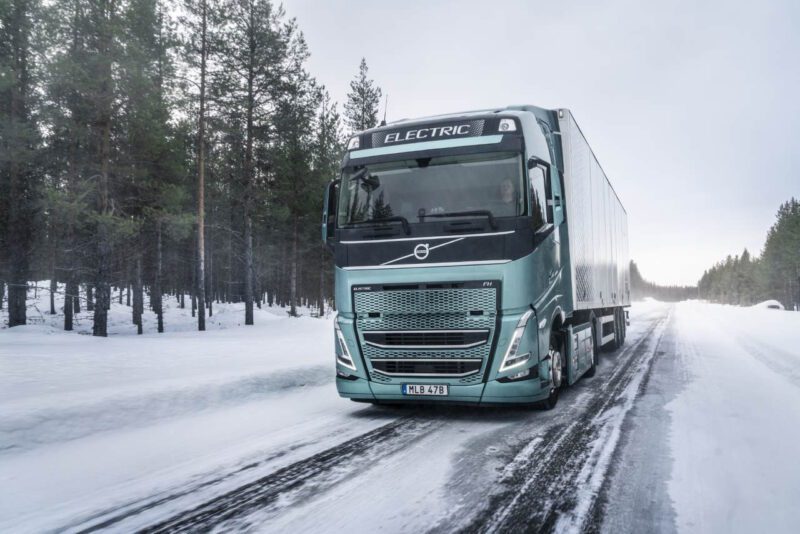All new trucks being registered in Germany from 2035 could be battery-electric if a broad-scale charging network is available by then, according to the Institute for Applied Ecology (Öko-Institut).
“The key entry point for ensuring the market success of zero-emission drive technologies is the rapid and targeted rollout of a charging infrastructure for heavy-duty commercial vehicles,” the Öko-Institut states. “Greenhouse gas emissions from road freight transport will then decrease significantly, particularly post-2030, reaching zero in 2045.”
Evaluating various drive technologies to identify their technical and economic potential, the research project found that battery-electric trucks will offer advantages over trucks powered by overhead lines or fuel cells, even when ranges and charging options are taken into account.
The findings are in line with those of other researchers. According to the total cost calculation, fuel cell vehicles are far more expensive than pure e-trucks due to the high level of uncertainty surrounding hydrogen prices.
Overhead catenary trucks, meanwhile, are limited to routes that are equipped with overhead lines. This constitutes a barrier to fleet electrification.
“The analysis also shows that e-trucks pay off,” says Katharina Göckeler, project manager and an expert in low-carbon freight transport at the Öko-Institut.
“Once the truck toll imposes a surcharge of 200 euros per tonne of carbon dioxide from December 2023, all zero-emission vehicles will offer clear cost benefits compared to conventional diesel-powered [heavy goods vehicles].”
What is needed, Göckeler adds, is an expanded public charging infrastructure for heavy-duty commercial vehicles along Germany’s motorway network that includes some 40,000 overnight charging systems (NCS) and 2,000 high-power megawatt charging systems (MCS), which can charge batteries within the legally prescribed 45-minute rest period after 4.5 hours of driving.
This story was first published on Clean Energy Wire. Reproduced with permission.


